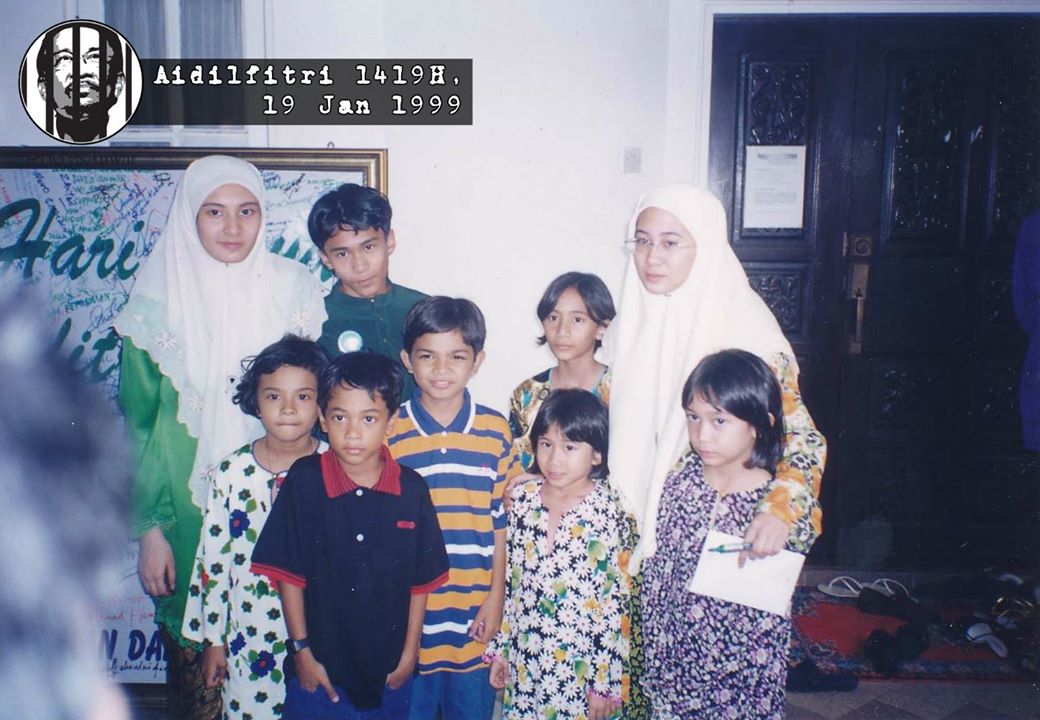BY BOO SU-LYN
JULY 19, 2013
The Malay Mail
Nurul Izzah told The Malay Mail Online in an exclusive interview, “Reform is the way forward.” — Pictures by Choo Choy MayKUALA LUMPUR, July 19 — Plunged into politics in the “Reformasi” movement that arose from her father’s arrest in 1998 and later anointed as its “princess”, it is small wonder that reforms are near and dear to lawmaker Nurul Izzah Anwar’s heart.
Now in her second term and fresh off another giant killing in Election 2013, the PKR vice president fully intends to keep reforms the cornerstone of the platform that helped her scalp two ministers: Datuk Raja Nong Chik Zainal Abidin in May and, before that, Datuk Seri Shahrizat Abdul Jalil in 2008
“Reform is the way forward,” Nurul Izzah told The Malay Mail Online in an exclusive interview recently.
“Before this, as a (new) legislator in Parliament, I started with revoking the Emergency proclamations, abolishing the Printing Presses and Publications Act (PPPA),” she said.
“And I started this session with a bill to abolish the Sedition Act, amending the Petroleum Development Act so that the prime minister does not have supreme authority over the use of Petronas funds.”
It is unclear how much Nurul Izzah’s tabling of a Private Member’s Bill to abolish the Emergency Ordinance (EO) led to the eventual repeal of the colonial era law in 2011, but for her, the timing was impeccable.
The same year, Prime Minister Datuk Seri Najib Razak repealed the preventive detention law, along with three Emergency Declarations. And before that, he did away with the Internal Security Act (ISA), loosened media licensing under the Printing Presses and Publications Act, and introduced the Public Assembly Act.
Later, he also pledged to do away with the Sedition Act once it is replaced with a National Harmony Act this year, but has not done so.
Nurul Izzah said that she is pushing for the implementation of the Independent Police Complaints and Misconduct Commission (IPCMC).
And hoping for a repeat of her luck from before, Nurul Izzah has again submitted a private bill to try and force the repeal of the law.
Her pressure on the announced repeal is understandable; despite an affirmation last week by the Cabinet of the PM’s announcement to abolish the Sedition Act, authorities continue to wield the law critics contend is abused to silence dissent.
On Thursday, a pair of bloggers was charged with sedition, among others, over a Ramadan jibe that sent Muslims into a lather.
“It’s important to keep him at it, to force him to fulfil his promises,” said Nurul Izzah, referring to Najib.
And with pressure from Home Minister Datuk Seri Ahmad Zahid Hamidi and the police for the reintroduction of “EO-like” powers, Nurul Izzah’s fight against the law may also not be over.
The lawmaker stressed that though the subject of resurrecting the EO’s powers might sound “abstract” at first, the decades-long use of the law has produced a police force that relies on a lower burden of proof to convict criminals.
“You give so much supreme authority, arbitrary powers to the police that they lose sight of the importance to fine-tune and produce evidence that can convict and bring criminals to justice,” said Nurul Izzah.
While on the subject of the police, Nurul Izzah added that she is pushing for the implementation of the Independent Police Complaints and Misconduct Commission (IPCMC) to hold the police force accountable for alleged abuse of power.
“The target outcome is better safety, the target outcome is reduced incidence of crime,” said Nurul Izzah. “You can’t say this is all wishy-washy abstract human rights-related issues that does not affect Malaysians.”
Beyond legal reforms, the daughter of Opposition Leader Datuk Seri Anwar Ibrahim believed the country’s race-based approach to politics was due for renewal.
“The last election showcased how important multi-racial politics is for the future of the country,” she said. “What’s important is we adopt issue-based politics.”
The Lembah Pantai MP said that being a politician is “a lifelong vocation.”
In Election 2013, Barisan Nasional (BN) lost further ground to the opposition pact of Pakatan Rakyat (PR), holding on to power with 133 seats to the latter’s 89.
After its worst electoral showing ever, BN and its mouthpieces sought to paint the result as a Malay-versus-Chinese contest, even going to the extent of coining the phrase “Chinese tsunami”.
But the coalition’s loss of the popular vote and subsequent analysis depicted a divide not of race but class, with urbanites voting one way while rural areas swinging the other.
Anwar, who had once been a deputy prime minister in Tun Dr Mahathir Mohamad’s administration, had said he would retire and return to teaching if PR failed to win Putrajaya in the 13th general election.
With the fractious polls now over, the opposition pact has to go through another term to fight again for its chances in breaking BN’s iron grip on power.
It is unclear, though, if Anwar, now 65, will become prime minister should PR ever win the 14th general election that is due to be called in another five years.
Nurul Izzah, however, was diffident when asked if she saw herself heading the Malaysian government if PR were to make history in winning federal power.
“I always take such ideas with a pinch of salt,” said the 32-year-old.
“What’s important is we have a sufficient generation of progressive leaders who embrace the idea of a better Malaysia, a multi-racial Malaysia. That’s more important.
“You can’t really depend on just one, two personalities to change the outcome,” she added.
When pressed if she even desired to be prime minister, Nurul Izzah, whom voters have often described as a humble, approachable politician, said: “I want to make sure that to the end of my days, I’m able to execute and implement my ideas.”
“You can do so by being an activist, by being a journalist,” said the mother of two, and added, “I’m a politician. I want to be a part of this. I want to make sure we have a better policy outcome.
“It’s a lifelong vocation for me.”
Source:
http://www.themalaymailonline.com/malaysia/article/for-puteri-reformasi-change-is-the-only-constant#sthash.JJzhXLLy.dpuf

